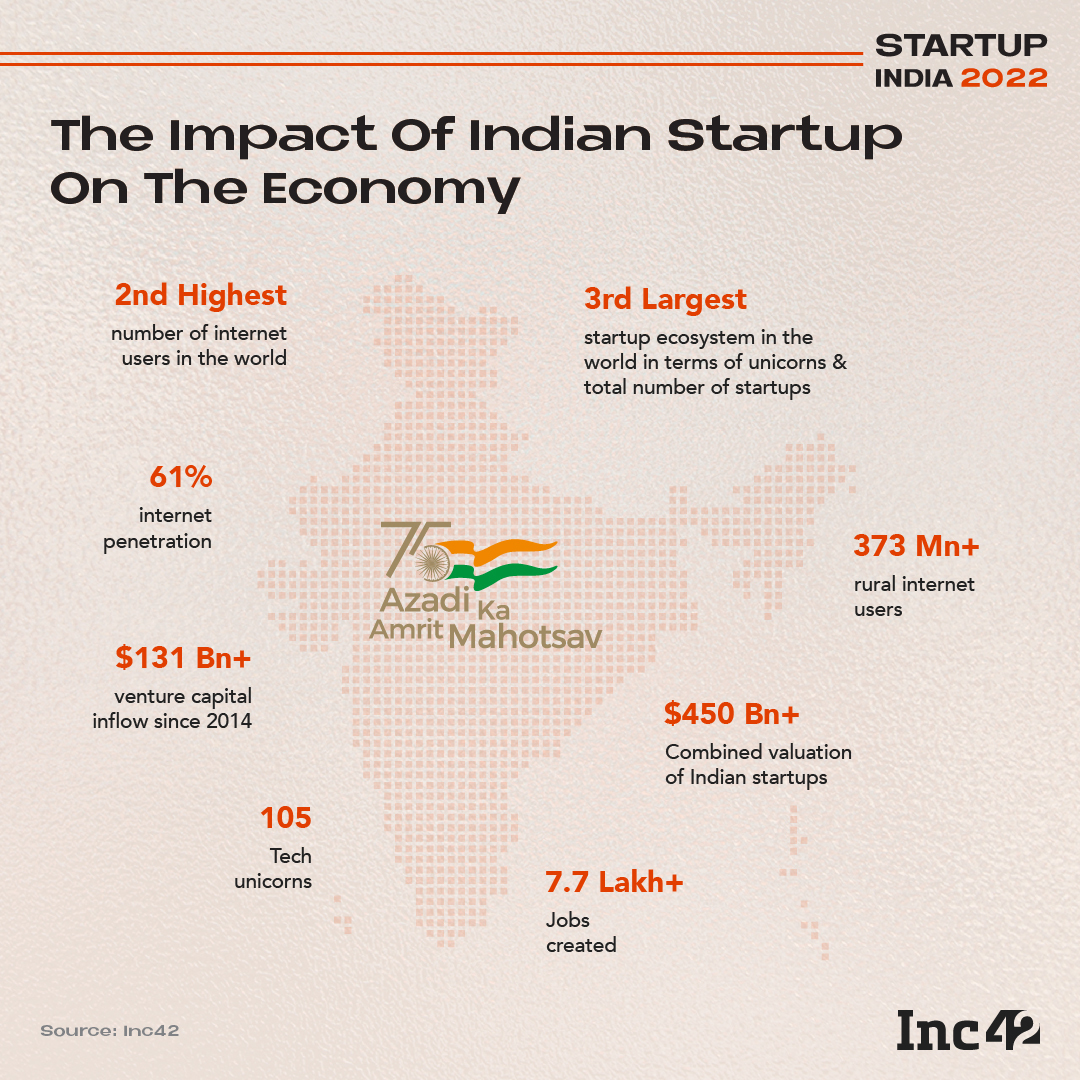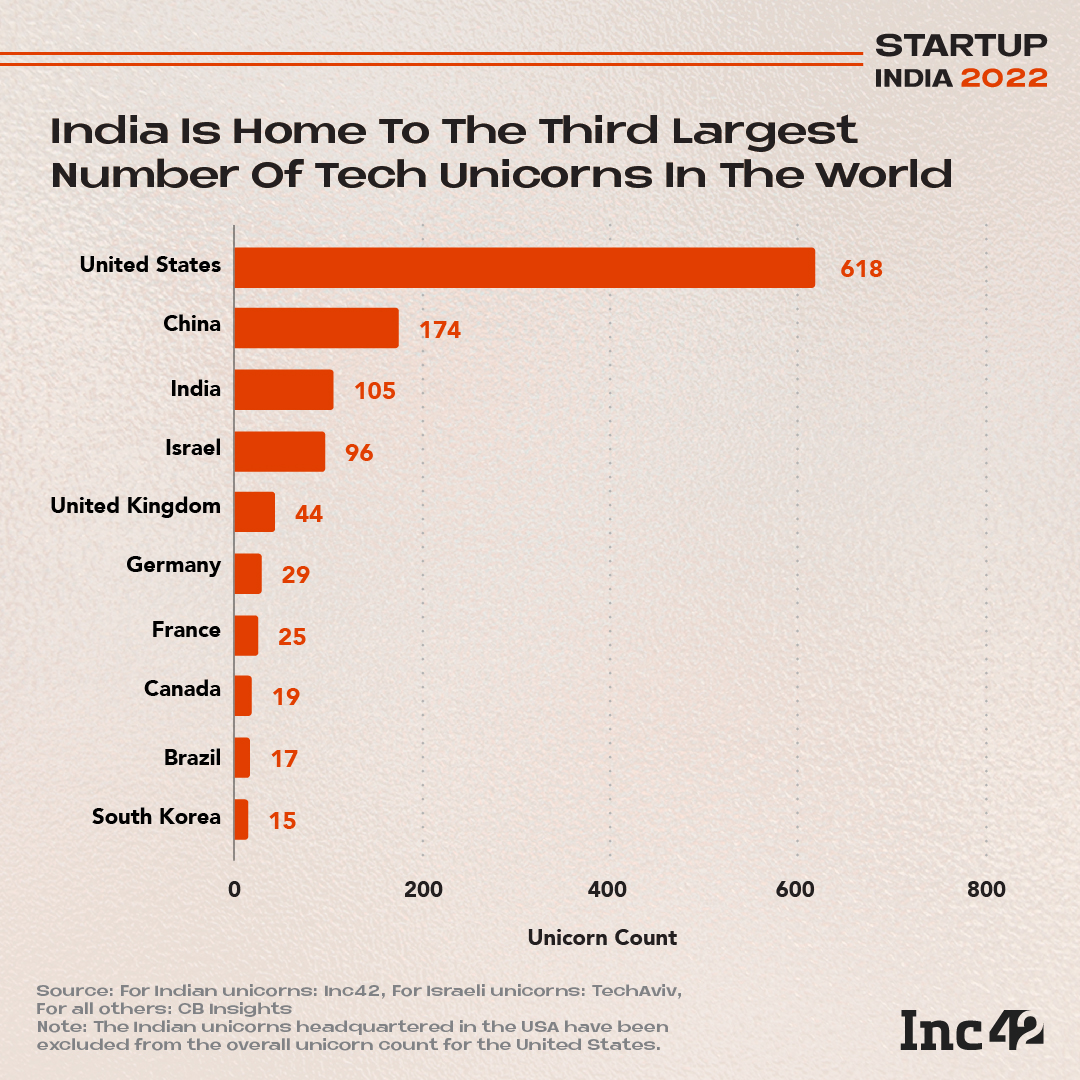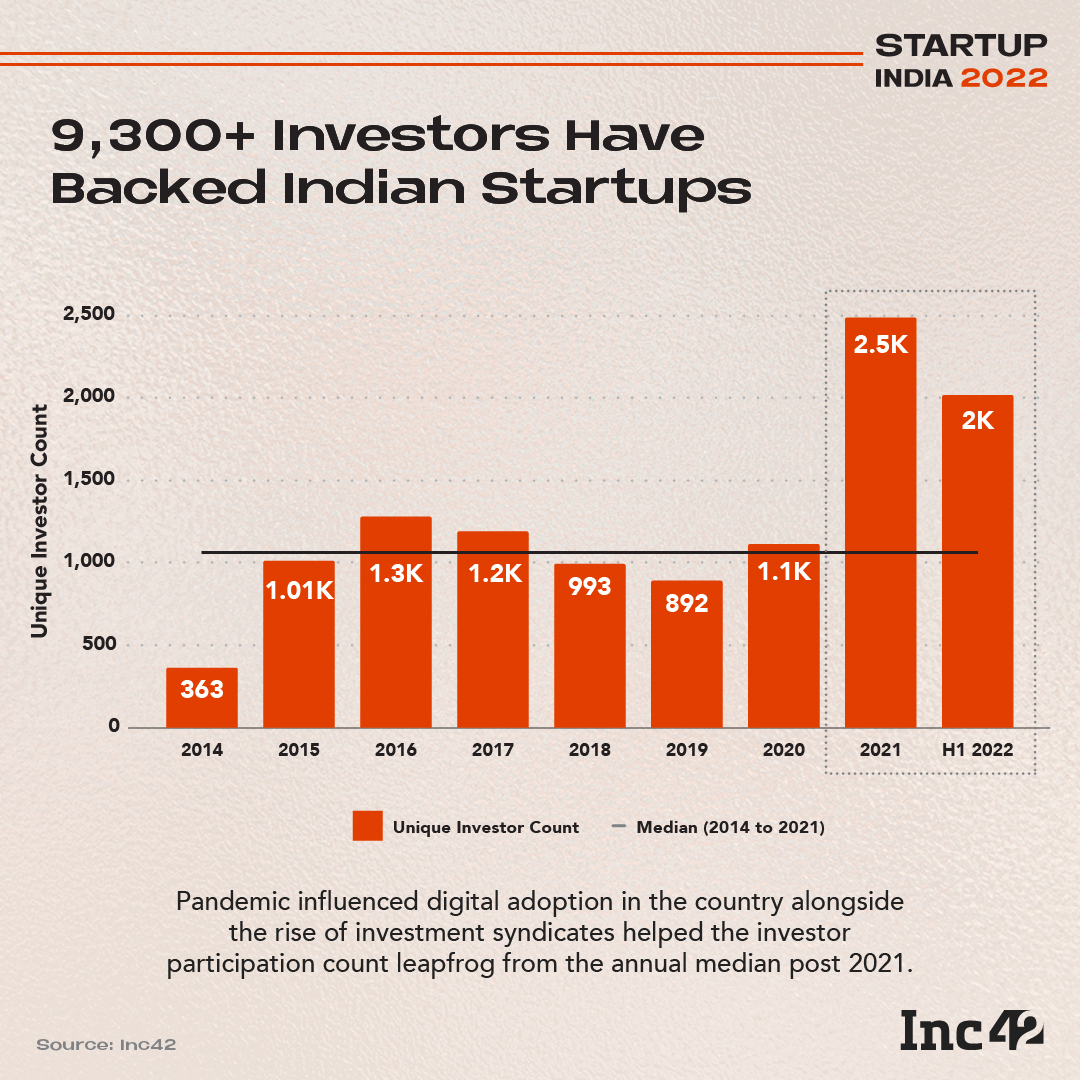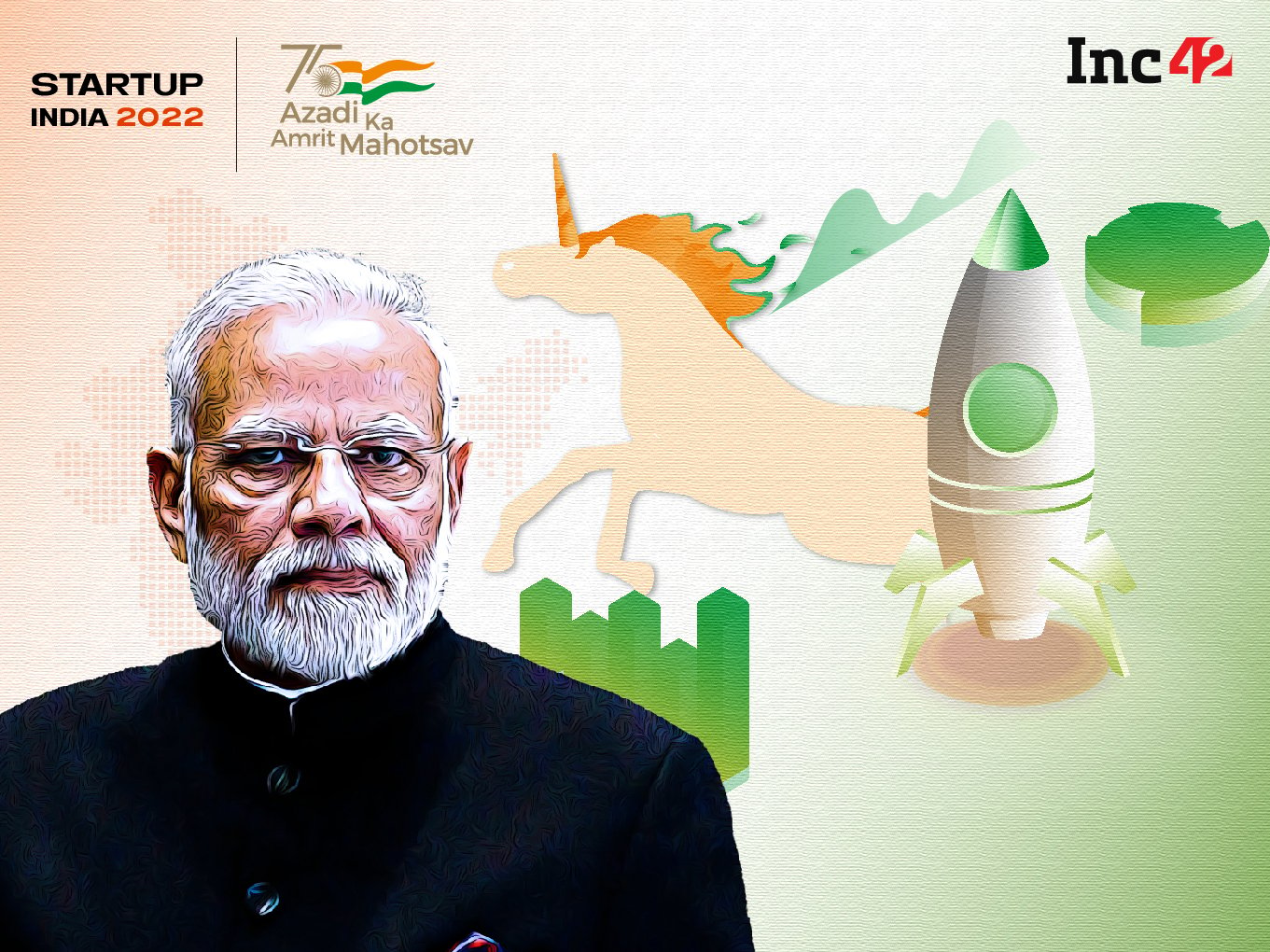SUMMARY
Indian startups have come a long way since 2015 and now is the time to clear the hurdles holding them back and hit the accelerator
Around August 15 every year, anecdotes about the independence struggle come roaring back into the mainstream consciousness. But the real work of independence actually began after August 15, 1947.
The first few years in newly-independent India would have been full of optimism and hope, even though there was a tacit acceptance among the populace that things would not be easy. And over the past 75 years, India has strived hard to live up to its geographical size and historical significance on the global stage.
And on that note, we wish you all great success and joy on India’s Independence Day
Today, many of us are filled with similar optimism about the future of India on the global stage, a lot of which would depend on the role of Indian tech. But at the same time we can acknowledge that the road ahead will have plenty of pitfalls.
So here’s a bold comparison: If the dawn of the internet age at the end of the 20th century was another independence moment for India, then the past 25-plus years have been all about building up maturity. The transition from an early-stage ecosystem to the current growth phase began in 2021 when Indian startups raised record-breaking funding and shot up in the global rankings.
Marking this momentous year and coinciding with the 75th Independence Day, Inc42 is launching The State of Indian Startup Ecosystem Report for 2022, which highlights just how far Indian startups have come in just the past seven years — since the announcement of Standup India, Startup India on Independence Day in 2015.
On that day, PM Narendra Modi declared, “We are looking at systems for enabling startups. We must be Number 1 in startups. Startup India & Stand up India!” and kickstarted the Startup India journey, which has grown exponentially.

When seen in the context of the time since 2014, the overall picture of Indian tech looks rosy, with the Indian startup ecosystem reaching a combined valuation of $450 Bn. Startups have also created more than 7.5 Lakh jobs in the country, as per government data. But when we go deeper into the ecosystem, we start to see the cracks that need to be filled up.
Nevertheless, being part of the growth journey of startups since 2014 has definitely infused some optimism in our outlook for the future — provided some of these pressing concerns are alleviated.
The Age Of Startups Turns Into The Age Of Tech
In 2019, we said that India was in the age of startups after the foundation was laid by IT giants such as Infosys, TCS, Wipro and others. Three years is not a long time from the point of view of the entire market maturing, but the pandemic’s impact on traditional businesses and the funding boom in 2020 and 2021 has definitely accelerated the development.
The maturity of the Indian market is evident from our data that highlights the growth of startups, their maturity in terms of IPOs and exits, the rising participation of domestic and foreign investors, the sharper focus on unit economics amid the current slowdown and more.
There’s little doubt that India is now in the age of tech as the third largest startup ecosystem in the world, as per our report, and is home to over 57K startups.
India only trails the US and China in terms of the total number of unicorns, and over $131 Bn has been invested in Indian startups over the past eight years till June 2022.
Even though startups in China and the US have raised considerably more funding since 2014, the growth rate for Indian startup funding at 49% and the rapidly rising internet penetration makes India a fertile market for new startups.
Similarly, India is producing unicorn startups faster than China and is all set to overtake its Asian neighbour in the next few years — particularly given the crackdown on big tech and a push towards centralisation in China.
When we dive deeper into the sectors that have contributed the most to this boom, we can see that ecommerce and fintech have garnered the majority of the funding. Ecommerce and fintech are critical sectors that act as linchpins for the wider tech ecosystem. For instance, logistics tech owes much of its growth to the rise of ecommerce.
Besides this, the entry of newer D2C models such as house of brands, roll-ups and others have changed the nature of the ecommerce industry and brought in more funding for independent brands.
And the same can be said for other sectors in the post-pandemic age such as healthtech, fintech and enterprisetech. The mass adoption of digital payments, communication and business management tools and telemedicine platforms has rapidly changed how Indians interact with startups on a daily basis.
The funding in ecommerce and fintech ($54.1 Bn) represents over 40% of the total funding since 2014, while enterprise tech has seen the most number of deals in the past eight years with nearly 1,400 of the 5000+ deals.

On the investor side, the Indian ecosystem is on the brink of recording 10K unique investors, more than half of whom have joined the pool in the last two years.
This has largely been driven by new funds launching to support pandemic-influenced digital adoption as well as the launch of micro VC funds that look to scout early stage investments. In the first half of 2022, 78 startup funds were launched or announced, with the total corpus raised for these funds exceeding $12.3 Bn, more than double the $6 Bn raised by VC funds in 2021.
And this despite the economic slowdown, which just shows that investors are still bullish about the Indian story. The spate of IPOs from giant startups such as Zomato, Paytm, Nykaa, Policybazaar and others has also fuelled the interest of investors in such late-stage startups.

The Cracks In The Startup India Story
So the macro view is great for India, but it’s only when we look at the sector-wise growth, developments and microtrends that the cracks start to appear in the startup story. While it can be claimed that over the past eight years, the Indian government has made registration of new businesses easier, on the other hand, the constant flip-flopping on policy and lack of clarity even where policy is present has made life difficult for startups, big tech companies and international giants.
Intense regulatory scrutiny in fintech sub-segments such as digital lending, prepaid payments instruments and buy now pay later (BNPL) have created complications for emerging startups.
Similarly, online gaming is also under the microscope of various state legislative houses, while the fate of the crypto industry hangs in the balance too despite government taxation coming into effect. Edtech giants might have to brace for more regulations as the topic of mis-selling and fees has been brought up in the government.
The Indian market is one of the toughest from a regulatory point of view due to institutions such as RBI, CCI, Enforcement Directorate, SEBI and others. These agencies have been given serious legislative teeth in all matters pertaining to businesses that are increasingly transgressing on various corporate governance and regulatory compliance matters.
While the investigations into many companies are legitimate, startup founders believe that regulators tend to intervene without much notice and this indirectly affects startups that may not even be working in the same sector, while at the same time there are policies that govern each industry that also have to be complied with. This creates a regulatory maze for many new startups and inexperienced founders.
For instance, while Startup India has boosted the ecommerce sector, the government’s regulations for ecommerce and online retail have thrown spanners in the works for marketplaces. The government has looked to clean up related party transactions in ecommerce and seller ownership, but this has caused plenty of problems for smaller sellers too.
Similarly, the lack of a data protection law means that fintech, enterprisetech, social media, and consumer services companies can sometimes be reckless with the data of their customers. While we have seen a trickle of regulations in each of these sectors rather than an all-encompassing privacy law, which will eliminate many of the endemic issues in the startup ecosystem.
The Future Of Startup India
Indeed, it’s not just fintech, ecommerce edtech or crypto sectors that have to account for the threat of regulatory disruption. In the past, policy issues such as the so-called angel tax affected plenty of startups, lack of clarity on regulations for crypto forced many businesses to shut shop and the stringent compliance rules has also forced many companies to flip their structures with HQs in Singapore or the US.
There’s little doubt that the government has looked to make compliance less burdensome, but the constant threat of regulations does make it difficult for companies to not consider moving the parent company out of India.
As seen in the Inc42 annual startup survey, 60% of Indian founders do not believe that an IPO on the Indian stock exchange is ideal for startups and a majority of these also believe that the Indian investor is not mature enough to understand startup business models.

We also spoke to founders across sectors to understand how they feel Startup India can be taken forward after the success of the past eight years. Obviously, the most common grievance was related to haphazard regulations.
Besides access to VCs, the biggest problem for entrepreneurs and startups is access to a skilled workforce.
Job creation is one of the biggest upsides of the startup ecosystem, but despite creating over 7.5 Lakh jobs in the past seven years, as per the DPIIT, Indian startups also face a talent crunch.
This is a great limiter for startups and one of the key goals for the government should be to clean up the education system to prepare tomorrow’s workforce.
Yes, the National Education Policy is looking to change the system, but that is likely to take years to show results. At the moment, the talent crunch and the constant threat of regulatory changes has dampened the spirit of the ecosystem somewhat. The confidence has also been dented by the economic slowdown globally and inflation in India, which has made operations costlier at a tough time.
Of course, entrepreneurs will always want fewer regulations, and the government’s approach cannot be faulted completely because some of these areas such as crypto or data security are very new and always evolving. The next three-four years will be critical from a policy point of view as the tech ecosystem rapidly matures.
Corporate social responsibility (CSR) and environmental, social and governance (ESG) activities will come to the fore as well. As they become part of everyday life, startups will leverage their scale to give back to the community and society at large. Sustainability will not only be core of the business and financials, but also in the operations and the impact that startups have on the wider world.
The feeling in the startup ecosystem is that policy stability will come in the long run, for now, it’s not unlike the uphill climb for the nation builders in the years immediately after independence.
Carrying forward their work responsibly and with the interest of people in mind is the biggest challenge for today’s startups, that are also in many ways nation builders.



























